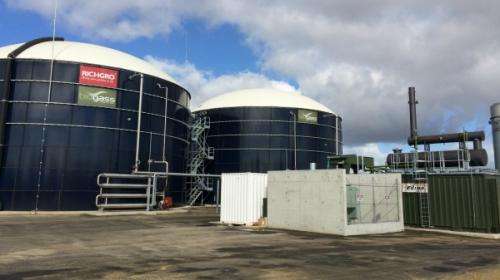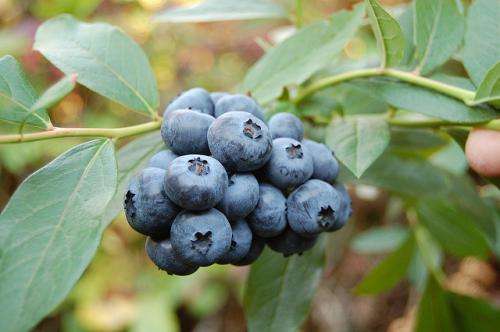Company powers up with food waste

Garden products company Richgro is using Western Australian food waste to power their operations in a new zero-waste system.
The Jandakot-based plant takes in approximately 100 tonnes of food per day, which is converted via anaerobic processes to methane, generating all the company's electrical needs.
Residual heat and CO2 is also used to support the production of blueberries in a thriving on-site hothouse.
Managing Director Geoff Richards says the venture reflects Richgro's core values.
"As a company, our ethos has been sustainability since the outset," he says.
"We were faced with an electricity cost of approaching a million dollars, apart from our costs for fuel—each of our big grinders for wood waste was using a thousand litres a day of diesel.
"So we wanted to move to better way of [operating] while playing a role in the issue of sustainability."
Mr Richards and his team sourced materials from around the world, including two 500-million-litre digestive tanks from the USA and utilised WA software.
They even acquired a de-packaging machine, which removes liquids from bottles and food from plastic or cardboard packaging.
Breads to veggies used for processing
"We want to make sure that everything coming on-site is used on-site," Mr Richard says.
"It is something we've constructed, and it's showing every sign of working very efficiently."

The plant is fed by waste from chicken processing factories (including feathers), bakeries, fast-food manufacturers, breweries, pie and pastry makers and all of Coles and Woolworth's non-packaged materials, such as breads, fruits and vegetables.
Waste takes 14 days to break down completely, with 100 tonnes of digestate produced daily, which goes into making compost and organic fertiliser.
"The radiator of the engine heats all the liquid going into the tanks, so it goes in at roughly 38 degrees, which is the temperature the bugs really love," Mr Richards says.
Mr Richards says Richgro also recycles household waste, notably from verge collections, taking most of the green waste streams south of the river.
"There is absolutely no doubt that unless we capture every skerrick of organic material in a city like Perth we're not going to do justice to our ability to produce foodstuffs for the world—which seems to be exciting everyone at the moment," he says.
"We need to ensure that we recycle as much as possible."
Provided by Science Network WA




















